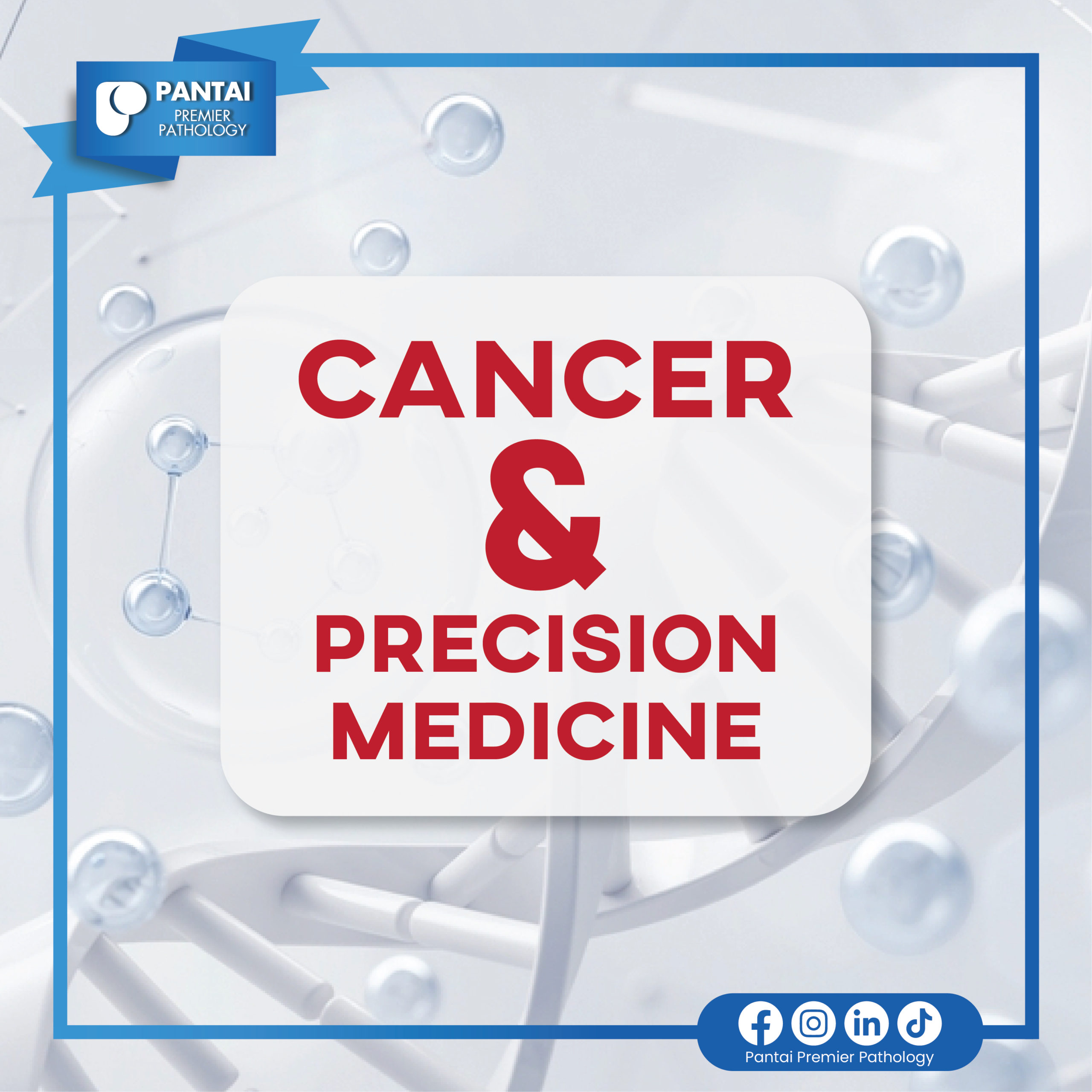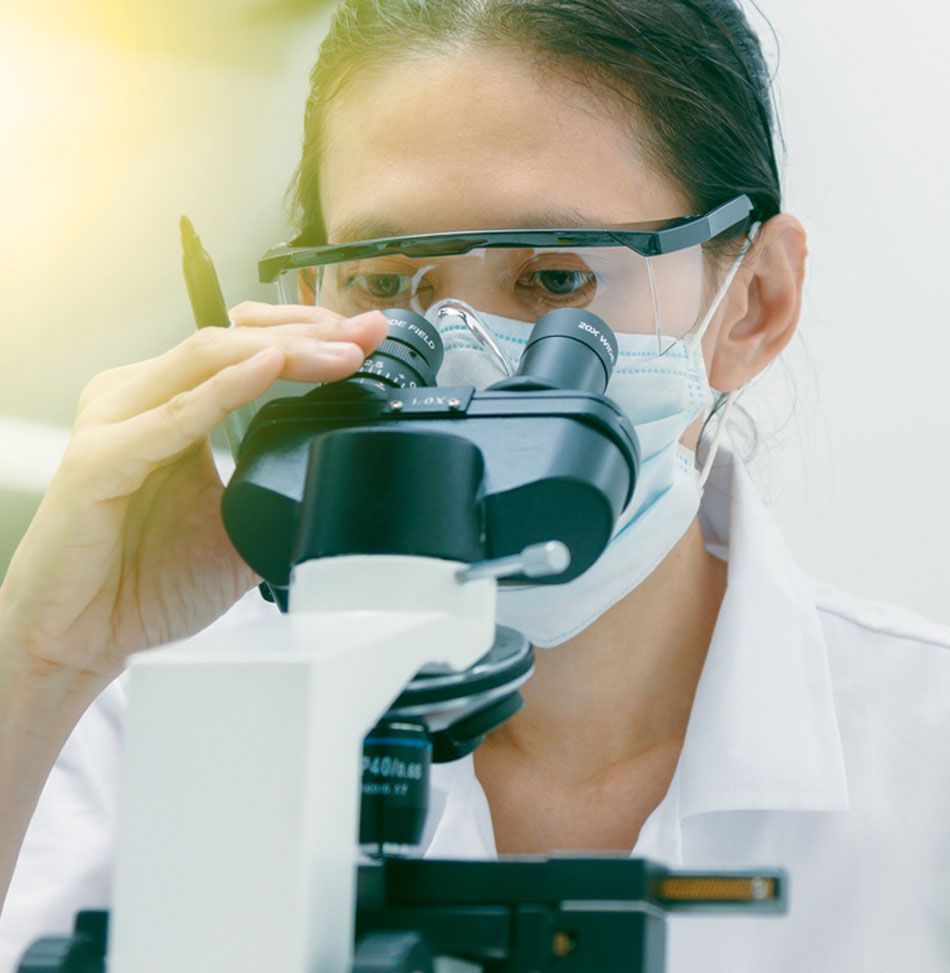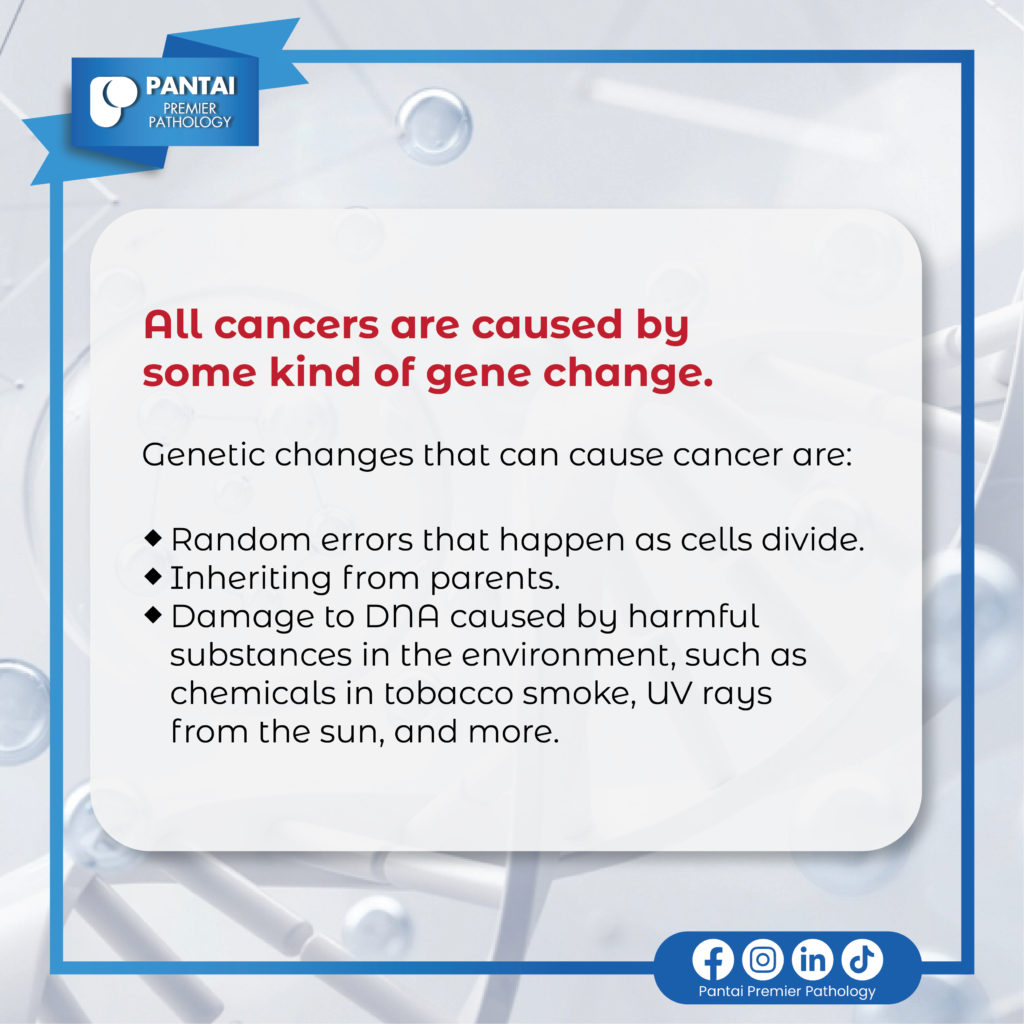
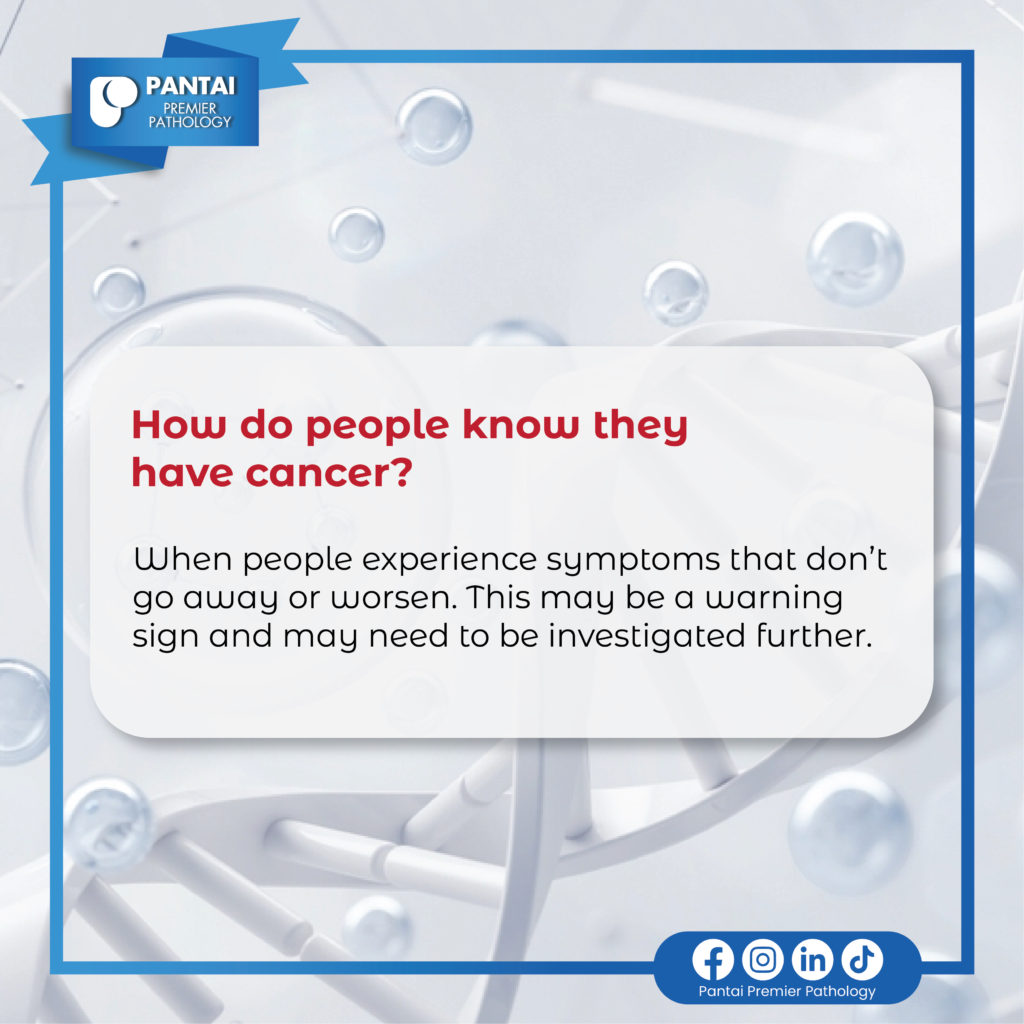
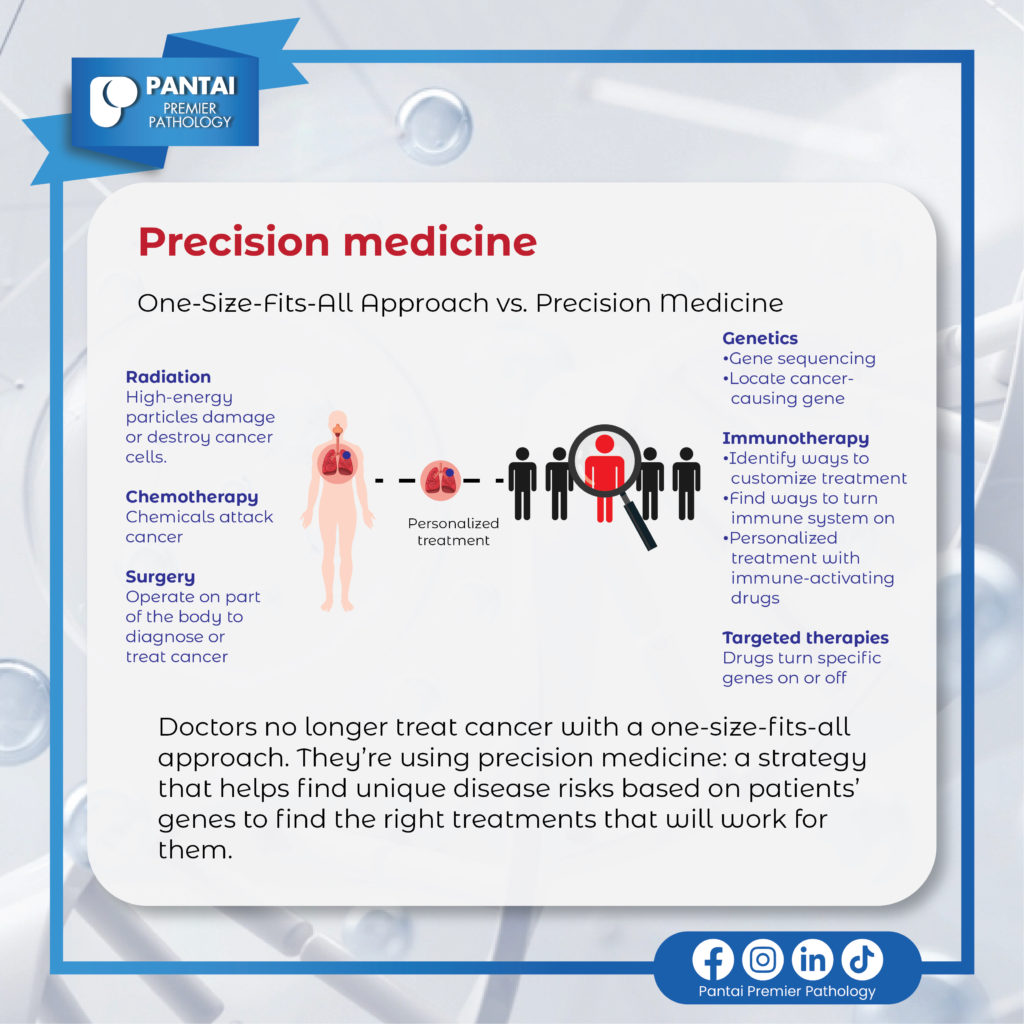
Cancer & Precision Medicine
Thousands of Malaysians are devastated by the news of cancer or other dreaded diseases every year. The news of cancer is always shattering and can be emotionally draining not just for the patient, but also for those around them.
Genetic Changes & Cancer
All cancers are caused by some kind of gene change. Cancer cells are abnormal versions of normal cells, which means that a change in a normal cell’s genes causes it to become a cancer cell.1
Genetic changes that can cause cancer to occur are2, 3:
- Random errors that happen as cells divide.
- Inheriting from parents.
- Damage to DNA caused by harmful substances in the environment, such as chemicals in tobacco smoke, UV rays from the sun, and more.
Diagnosis: How Do People Know They Have Cancer
Cancer is often found when people experience various symptoms that don’t go away or get worse. This may be a warning sign and may need to be investigated further. Your doctor will use a range of tests to diagnose your cancer.
If it is cancer, there are chances to have it treated early, when treatment is more successful.4
Precision Medicine
Doctors are no longer treating cancer with a one-size-fits-all approach. They’re using precision medicine also called personalized medicine: a strategy that helps find unique disease risks based on patients’ genes to find the right treatments that will work for them.5
With regard to cancer, doctors can now use precision medicine to diagnose and make treatment decisions based on specific information about a patient’s tumor from their own genes. This involves testing DNA from patients’ tumors to identify the mutations or other genetic changes that drive their cancer and select a treatment for that particular cancer that targets the culprit mutations in the tumor DNA.6
As these “targeted therapy approach” specifically target cancer cells that are different from normal body cells, this makes them less likely to be toxic to patients when compared to other treatments that can kill normal cells, such as radiation and chemotherapy.7

Precision Medicine in Healthcare
Precision medicine represents the future of patient care, as we move from intervention-based healthcare to preventive healthcare. Using a precision medicine approach, medical recommendations and a clinical action plan can help address and reduce your cancer risk.
Some common cancer tests that can help your specialists make informed decisions that can be done at PPP are Breast, Lung, Colon, Ovarian and more.
For more information on the tests provided, please contact us at +603-42809115 (Customer Service) or email us at info@premierpathology.com.my.
References
1- Precision or Personalized Medicine | Precision Medicine for Cancer. (n.d.). https://www.cancer.org/treatment/treatments-and-side-effects/treatment-types/precision-medicine.html
2- What Is Cancer? (2021, October 11). National Cancer Institute. https://www.cancer.gov/about-cancer/understanding/what-is-cancer
3- The Genetics of Cancer. (2022, August 17). National Cancer Institute. https://www.cancer.gov/about-cancer/causes-prevention/genetics
4- Signs and Symptoms of Cancer | Do I Have Cancer? (n.d.). https://www.cancer.org/treatment/understanding-your-diagnosis/signs-and-symptoms-of-cancer.html
5- Precision health: Improving health for each of us and all of us | CDC. (n.d.). https://www.cdc.gov/genomics/about/precision_med.htm
6- Precision or Personalized Medicine | Precision Medicine for Cancer. (n.d.-b). https://www.cancer.org/treatment/treatments-and-side-effects/treatment-types/precision-medicine.html
7- Cancer genome research and precision medicine. (2017, May 3). National Cancer Institute. https://www.cancer.gov/about-nci/organization/ccg/cancer-genomics-overview

